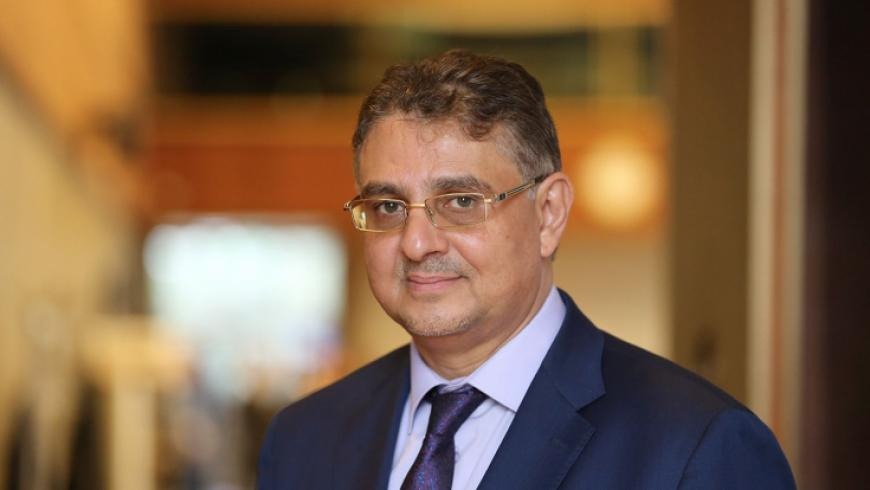Dr. Badr Jamous, the head of the Syrian Negotiating Commission, recently voiced his reservations regarding the initiatives proposed by UN Special Envoy for Syria, Geir Pedersen, while expressing support for the potential relocation of the Constitutional Committee’s meetings to Riyadh. In an exclusive interview, Jamous provided insight into the latest developments within the Syrian Negotiating Commission, their stance on ongoing political efforts, and the challenges facing Syria’s future.
Political Process at a Standstill
The Syrian Negotiating Commission recently held a crucial two-day meeting in Geneva, aiming to break the political deadlock that has plagued the Syrian peace process. With the possibility of holding the Constitutional Committee meetings in either Baghdad or Riyadh gaining traction, the SNC sought to strategize for the next phase of negotiations. Jamous highlighted that the meeting, which included the participation of Geir Pedersen, focused on several critical issues at the local, regional, and international levels.
Pedersen Meets Negotiations Commission, Calls for De-escalation & Political Solution
“We conducted a political review of the recent period, evaluated the latest developments in various countries’ positions, and examined their impact on the political process,” Jamous explained. He emphasized the importance of keeping the Syrian issue on the international agenda and advancing the political process in accordance with international resolutions, particularly the Geneva Statement and UN Resolutions 2118 and 2254.
A Meeting with the UN Envoy
During the Geneva meeting, the Syrian Negotiating Commission held a special session with Pedersen to discuss his office’s ongoing efforts. Jamous stressed the need to prevent any deviation from UN resolutions, reiterating that the legitimate demands of Syrians for freedom, justice, and citizenship must remain central to the process.
Notably, the recent meeting did not include representatives from other countries, a deliberate decision to allow for internal discussions and assessments of the political situation. This move underscores the SNC’s commitment to formulating a cohesive strategy that reflects the diverse opinions and priorities of its members.
Criticism of the UN Envoy’s Initiatives
Jamous expressed cautious support for Pedersen’s efforts, acknowledging his hard work in facilitating Syrian-Syrian negotiations. However, he also voiced significant reservations about some of the initiatives proposed by the UN envoy. “We support any initiative that aligns with international resolutions,” Jamous stated, but he warned against any actions that might bypass or undermine these resolutions.
The main obstacle, according to Jamous, lies with the Syrian regime, which has consistently refused to cooperate and advance the political solution, including its refusal to resume the Constitutional Committee meetings. The regime’s stalling tactics, coupled with support from its allies, have contributed to Syria’s ongoing security and economic crises.
Potential Constitutional Committee Meetings in Riyadh
Amid reports that Riyadh could host future Constitutional Committee meetings, Jamous welcomed Saudi Arabia’s involvement, noting the kingdom’s significant regional and international influence. However, he emphasized that the location of the meetings is less important than ensuring that they lead to substantive progress.
“Our focus is on the content and mechanisms of the Constitutional Committee’s work, as well as on political negotiations regarding other key issues,” Jamous remarked. He reiterated the need for a modern, democratic constitution for Syria—one that guarantees justice, equality, pluralism, dignity, and human rights.
Engaging with Emerging Political Forces
Jamous also addressed the rising calls for new political bodies in northern Syria, acknowledging the critical role of the popular base in supporting the Syrian Negotiating Commission. He reaffirmed the SNC’s commitment to engaging with all peaceful movements within Syria and amplifying their voices on the international stage.
“We maintain communication with every peaceful movement in Syria, encourage their activities, and work to amplify their voices,” Jamous said. The SNC continues to collaborate with international organizations and concerned countries on pressing issues such as detainees, forcibly disappeared persons, displaced persons, and refugees.
This article was translated and edited by The Syrian Observer. The Syrian Observer has not verified the content of this story. Responsibility for the information and views set out in this article lies entirely with the author.


